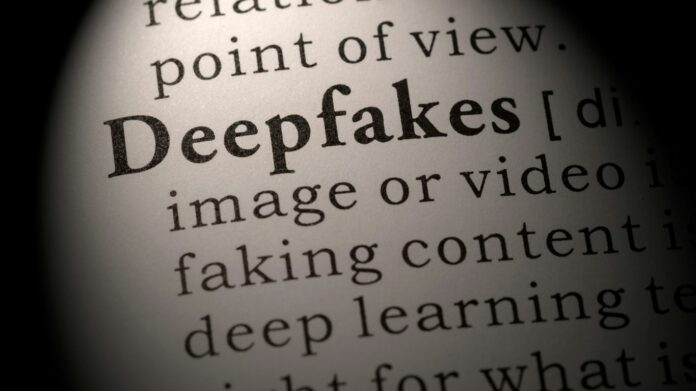In 2023, India found itself at a crossroads between deepfake technology issues and technological innovation. Additionally, we saw The Indian prime minister, Shri. Narendra Modi, sending a cautionary note to the populace, advising them to utilize technology responsibly and avoid becoming gullible. Stars and common people alike were powerless against the destructive possibilities that this technology held. Simultaneously, the entertainment and advertising sectors utilized their influence. Let’s take a closer look at the situation.
What is deepfake technology?
Deepfake technology refers to the use of deep learning techniques to create or manipulate audiovisual content, such as videos, images, or audio recordings. The term “deepfake” is a combination of “deep learning” and “fake.” Deepfakes typically use deep neural networks, specifically generative models, to replace, alter, or superimpose existing content with synthetic media. These models can be trained to mimic the appearance and behaviour of a person, enabling the creation of highly realistic but entirely fabricated videos or images. Although the practice of fabricating information is not new, deepfakes use potent AI and deep learning techniques to edit or create visual and audio content that is easier to deceive.
The challenges posed by deepfake technology
The dangers deepfake technology brings can be the following:
Fake News and Disinformation
Deepfakes worsen the fake news problem that India has been dealing with in previous years. It is difficult for the general public to distinguish between authentic and modified content due to the capacity to produce incredibly convincing video and audio recordings. This may cause false information to spread quickly, harming public trust and social harmony.
Following the widespread discussion of the deepfake video of a well-known actress, Rashmika Mandanna people started to realize how detrimental deepfake is to society.
Security Concerns
Deepfakes pose significant security risks, especially in a country with a growing reliance on digital systems. There is a serious security risk associated with deepfakes used for impersonation. The news that a man in Kerala had fallen victim to financial fraud using deepfake sparked concerns among the general public. Deepfake technology can enable security breaches with serious repercussions, such as identity theft and illegal access to secure systems. The misuse of deepfake technology might have grave implications in the government, healthcare, and banking sectors.
Misuse for Malicious Intent
The primary disadvantage of deepfake technology lies in its potential for misuse. From spreading misinformation to creating malicious content for extortion or defamation, the technology provides a powerful tool for those with malicious intent. Deepfake technology facilitates the creation of revenge porn or nonconsensual pornography of women.
Political Manipulation
One of the significant issues India faces with deepfake technology is the possibility of political manipulation. Elections, public opinion, and national stability could all suffer significantly from the production and spread of deepfake content, given the country’s diversified political environment and the size of its social media user base. Deepfakes with political motivations could be used to disseminate misinformation, damage people’s reputations, and manipulate public sentiment.
The advantages of Deepfake technology
The benefits of deepfake technology can be the following:
Entertainment and Media Production
While deepfakes present challenges, they also offer opportunities in the entertainment industry. The Cadbury advertisement featuring Bollywood actor Shahrukh Khan, saying the names of different neighborhood stores won over the hearts of the general public and the tech community during Diwali 2023. Rephrase.ai, a synthetic video creation platform driven by generative AI, created the advertisement.
Wakefit.co has embraced the artificial intelligence wave in its latest ‘Andar ke bacche ko jaga’ campaign featuring its brand ambassador, Ayushmann Khurrana. The TV commercial features Ayushmann Khurrana at his current age and a child version of him. Wakefit.co utilizes deep learning programs and computer graphics to create the child version of Ayushmann.
Personalized Content Creation
Deepfakes enable the customization of content on a personal level, as seen in the above case of the Cadbury ad featuring Shah Rukh Khan. Individuals can experience a more tailored digital environment, from personalized advertisements to customized video messages. This may result in increased user engagement and a more immersive online experience.
Training and Education
Deepfake technology can be used for training and education, delivering realistic simulations and training scenarios. Deepfake-created virtual environments can enhance training programs in industries such as medicine, defense, and emergency response, allowing experts to gain hands-on experience in a controlled and safe environment.
Legal and Ethical Dilemmas
India’s legal framework is still evolving to address the complexities of deepfake technology. Striking a balance between free expression and misinformation becomes challenging. The rapid evolution of AI-generated material outpaces current legislation, resulting in a regulatory void. The lack of explicit laws makes it difficult for law enforcement to punish perpetrators. Questions related to privacy, consent, and the legal consequences of creating and disseminating deepfake content need urgent attention. The lack of clear regulations and ethical guidelines poses a challenge for law enforcement agencies and the judiciary.
Conclusion
Researchers globally are working relentlessly to invent deepfake detection technology. Cutting-edge research aims to reveal new detection methods while upgrading algorithms to stay ahead of evolving threats. Collaborative efforts focus on developing advanced tools for content authentication, which is crucial in an era of widespread misinformation. Ongoing discussions are driven by ethical concerns, emphasizing responsible AI development. As deepfake expertise grows, interdisciplinary techniques that combine technology, psychology, and law are being developed to strengthen defenses. The ongoing research aims to arm individuals and organizations against the threats of misleading digital information, thereby creating a safer and more secure online environment for all.




